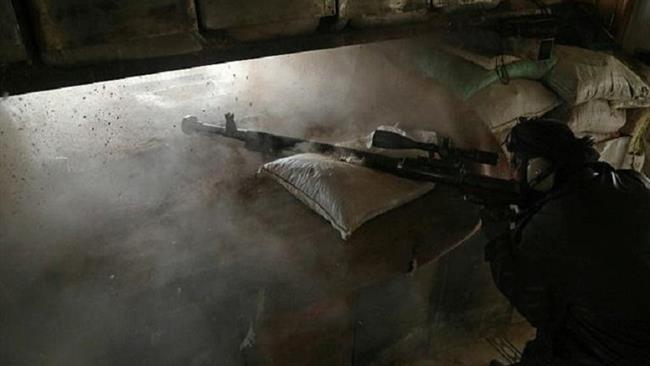Beirut – Syrian military factions are expected to announce their participation in the Astana talks which will be held on May 3 and 4.
At the same time, opposition is warring that battles between factions in eastern al-Ghouta, that have been ongoing since Friday, could affect the negotiations in Kazakhstan, the Geneva talks and any resolutions that may establish ceasefire.
Factions have taken a decision to participate in Astana, which will be announced officially within the coming two days, opposition sources told Asharq Al-Awsat.
Colonel Fateh Hassoun, member of the opposition negotiating team, said that so far nothing has been decided concerning the participation unless new updates occur before the convention is due. He told Asharq Al-Awsat newspaper that there have been some positive developments and new data added to the negotiations’ schedule, which were sent to them unofficially along with the participation invitation.
Hassoun did not give any further details.
He did however explain that the “positive developments” are related to the execution of the ceasefire which could be beneficial if Russia committed to it. In addition, new international parties are sponsoring the talks after it was somehow limited between Russia and Iran.
A number of officials announced that a few other countries, including Qatar, could participate in the Astana meeting, in addition to the possibility of the involvement of the United States.
Meanwhile, on the field on Saturday, “Failaq al-Rahman” (Rahman Legion) held the “Jaysh al-Islam” (Army of Islam) fully responsible for the deteriorating situation in al-Qaboon neighborhood near the Syrian capital Damascus.
The Syrian Observatory for Human Rights reported that on Saturday morning, violent clashes erupted for the second day between the fighters of “Jaysh al-Islam” against the Rahman Legion and “Hayyaat Tahrir al-Sham” in Eastern Ghouta.
The Observatory stated that clashes are concentrated within the town of Hazza, where each side has brought military reinforcements over the past 24 hours. Reliable sources confirmed to the Observatory that “many of the bodies are still on the contact lines between both parties of the clash, without any side being able to retrieve them.”
Hassoun did not deny that the clashes in Ghouta could negatively affect Astana and Geneva. He added that the incidents are grave and efforts are being exerted to contain the situation as much as possible.
Both parties exchanged accusations on who started the battles, but Syrian researcher Ahmad Abazeed told Asharq Al-Awsat that disagreements between Jaysh al-Islam and Rahman Legion are old. He however said that the situation escalated over a year ago when the al-Nusra Front allied with Rahman Legion against Jaysh al-Islam.
He pointed out that most of Nusra posts are under the control of Jaysh al-Islam in the mid-sector amid fears of escalating battles.
The Observatory said that over the past 24 hours, at least 38 fighters were killed in addition to several civilian casualties.
Protesters in Saqba and al-Houra took to the streets demanding that the factions unite their forces. The Observatory reported that the civilians were shot and several were injured as they approached.
Regime forces and their allies attacked opposition-held district of Qaboon northwest of Eastern Ghouta by land and air and succeeded in advancing.
Spokesperson of Rahman Legion Wael Alwan said that Jaysh al-Islam had cut off all supply lines from Ghouta after it had surrounded the city. He said that the only passage from Ghouta to Qaboon is packed with rebels of Rahman Legion, who are fighting regime militias.
Alwan explained to Asharq Al-Awsat that if fighting among the factions continues, it will reflect negatively on the situation in the field and the Syrian revolution. He stated that they are trying to contain the situation as much as possible, while confirming that the legion did not participate in any battles other than in defending themselves.
Earlier, the Legion issued a statement saying that Jaysh al-Islam had attacked some of its positions, reiterating that factional fighting is not within the best interest of eastern Ghouta or the Syrian revolution.
